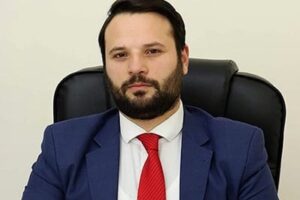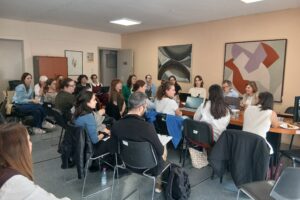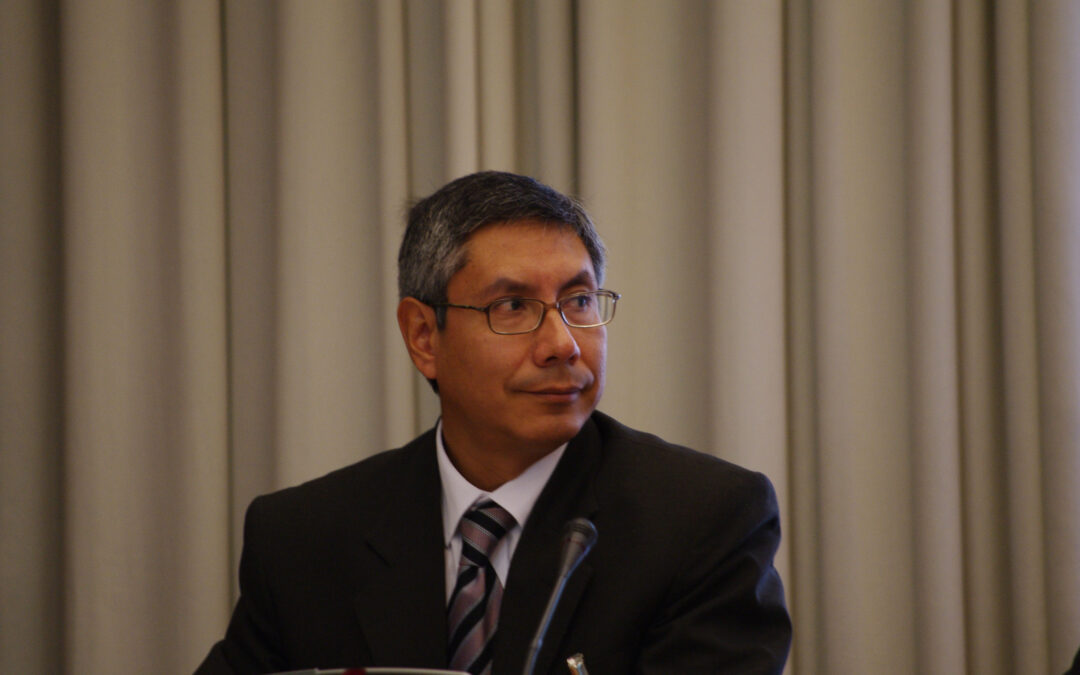
May 3, 2017 | Advocacy
ICJ’s Senior Legal Adviser Carlos Lopez made an important speech today at a Joint Hearing of the European Parliament’s Committee on International Trade and Subcommittee on Human Rights.
The declaration was about the United Nations intergovernmental process towards a treaty in the field of business & human rights.
This treaty could be a crucial instrument for the EU, European countries and European businesses to promote common global rules of respect for human rights that are stronger and enforceable vis a vis companies from all regions.
This will help level the playing field for the companies that have a genuine interest in human rights protection by creating a common standard.
For Governments, it is an important instrument to advance the objective of a level playing field for businesses in the global marketplace.
This is not only important and a condition of success for European businesses who currently have to compete with businesses that do not have to observe the same rules in other parts of the world, but is also a condition for the sustainability of economic globalization and its potential to deliver for the human rights for all.
Download Carlos Lopez’s speech below:
Europe-ICJ speech at the european parliament-ADVOCACY-2017-ENG (in PDF)
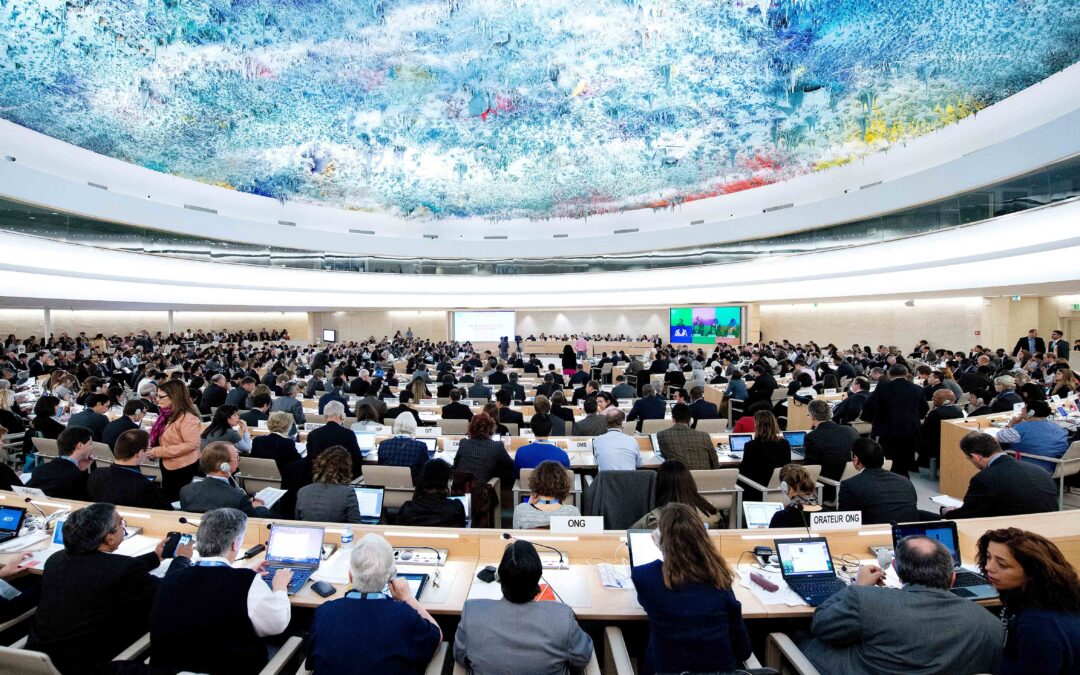
Mar 10, 2017 | Advocacy, Non-legal submissions
The ICJ made a joint statement on the report of the Open-ended intergovernmental Working Group on Transnational Corporations and Other Business Enterprises.
The intervention was made at the United Nations Human Rights Council on behalf of Franciscans International, International Commission of Jurists, Colombian Commission of Jurists and the International Federation of Human Rights Leagues (FIDH). All are members of the civil society coalition: “Treaty Alliance”.
The statement read as follows:
Our organizations welcome the report on the second session of the Open-ended Intergovernmental Working Group on Transnational Corporations and Other Business Enterprises with respect to human rights.
We are encouraged by the growing participation of States and other stakeholders in interesting and constructive discussions but remain concerned by the failure of some States to truly engage constructively with the process.
Civil society groups documented in these years countless cases of business involvement in human rights abuses. This demonstrates that existing mechanisms could be useful but are not sufficient and that a new binding instrument at the global level is needed.
The treaty should address all business enterprises and give States the tools to tackle the particular challenges posed by transnational corporations, providing the necessary protection to victims of human rights abuses, including Human Rights defenders who are targeted for their work and opinion.
Access to effective remedy and reparations remain problematic at the domestic and cross-border levels. In order to achieve the effective protection of human rights from business related abuses, the treaty should build on and go beyond existing international human rights standards and instruments.
We call on the Chair-Rapporteur to present a draft elements paper in accordance with the mandate of the Open ended Working Group. This paper should be as detailed as possible and reflect the discussions of the first two sessions, in order to facilitate the start of meaningful negotiations at the third session in October 2017.
We urge all stakeholders, especially States, to engage in constructive and substantive discussions on the content and scope of this instrument in the perspective of the third session.
The statement can be downloaded in PDF format here: HRC34-Joint Statement-IGWG Transnational Corporations-Advocacy 2017
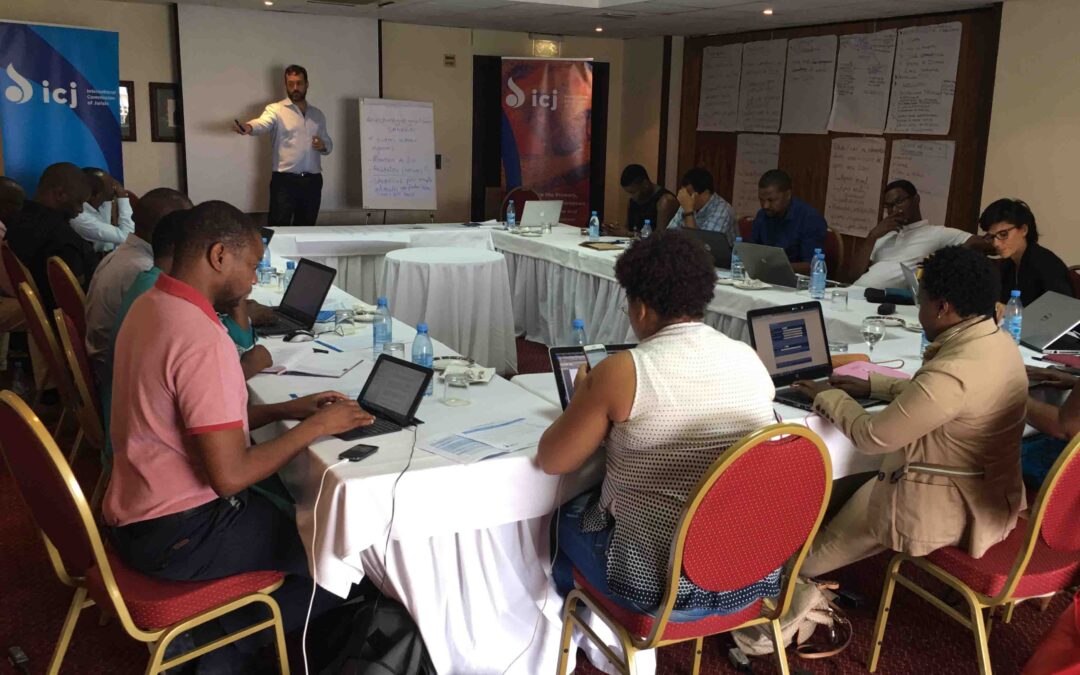
Mar 3, 2017 | News
15 HRDs from Mozambique, including lawyers and journalist working in different provinces and towns of Mozambique including Nampula, Manica, Tete, Sofala and Beira held a strategy meeting for the protection of human rights defenders (HRDs) in Maputo from 2-3 March 2017.
The meeting was facilitated by the ICJ in collaboration with the Southern Africa Human Rights Defenders Network (SAHRDN) supported by the Open Society Foundations (OSF) and Open Society Institute of Southern Africa (OSISA).
Participants reflected on the state of human rights in Mozambique with a focus on prevailing political and economic conditions requiring urgent multi-pronged interventions to support HRDs.
The participants developed practical steps for legal protection of HRDs, enhancing a HRDs network, the nature of services and safety mechanisms required to protect HRDs including in violent conflict. In addition, ideas on how to address business and human rights violations were explored.
The use of strategic litigation at the domestic and international level to protect human rights was looked at and specific situations mapped as requiring some attention.
Linkages to regional and international human rights mechanisms for protection purposes and challenging impunity were discussed and some initial measures to take at the African Commission on Human and Peoples Rights were identified.
Contact
Arnold Tsunga, ICJ Regional Director for Africa, t: +27 716405926, e: arnold.tsunga(a)icj.org

Feb 27, 2017 | News, Publications, Reports, Thematic reports
The Government of Myanmar should impose a moratorium on the development of Special Economic Zones (SEZs) until it can ensure SEZs can be developed inline with international human rights laws and standards, said the ICJ at a report launch held today in Yangon.
The 88-page report, entitled Special Economic Zones in Myanmar and the State Duty to Protect Human rights, assesses the laws governing Myanmar’s SEZs and finds that the legal framework is not consistent with the State’s duty to protect human rights.
For example, a case study examining the Kyauk Phyu SEZ in Rakhine State shows that the land acquisition process initiated in early 2016 lacks transparency, does not comply with national laws on land acquisition, and risks violating the rights of 20,000 residents facing displacement.
“The SEZ Law undermines the protection of human rights, and critical legal procedures are often poorly implemented, so the Kyauk Phyu project risks repeating the rights violations that have been associated with SEZs in the past,” said Sam Zarifi, the ICJ’s Asia Director.
“The NLD-led Government can make a break from the past by ensuring economic development projects benefit Myanmar’s people, rather than rushing to facilitate projects which result in human rights violations and ultimately undermine sustainable development,” he added.
Myanmar’s legal framework for SEZs is based on the 2014 SEZ Law and incorporating national laws governing land, labour and the environment.
The report shows that while national laws require Environmental Impact Assessments and the application of international standards on involuntary resettlement, the SEZ Law does not establish clear accountabilities for the implementation of these procedures.
This has contributed to human rights violations and abuses in each of Myanmar’s three SEZs, the report says.
“It has been encouraging that government officials have emphasized their commitment to protecting human rights in SEZs in line with the rule of law,” said Sean Bain, the ICJ’s Legal Consultant in Myanmar and lead author of the report.
“The legal reforms recommended in this report will be critical to meet these commitments while fulfilling the State’s duty to protect human rights in SEZs. We also suggest that investors take heightened due diligence measures to ensure they are not complicit in rights violations,” he added.
The report was based on extensive legal research as well as interviews with over 100 people, from affected communities to investors and government officials, during 2016.
Key recommendations to the Government of Myanmar
- Protect human rights in Myanmar’s SEZs by amending the SEZ Law, through meaningful public consultation in accordance with international standards.
- Order a moratorium on the development of SEZs, and on entering related investment agreements, until the SEZ Law has been amended to ensure conformity with international human rights law and standards.
- Commission a Strategic Environmental Assessment for the Kyauk Phyu SEZ, in line with Myanmar’s environmental conservation laws. This would involve consultation to inform decision-making on the Kyauk Phyu SEZ and related projects, by identifying cumulative environmental and social impacts of all the developments in Kyauk Phyu, while considering conflict dynamics and economic development in Rakhine State.
- Suspend land acquisition in Kyauk Phyu until after the completion of a resettlement plan that is in line with international standards, as required in the EIA Procedure.
Contact
Sean Bain, ICJ Legal Consultant in Myanmar, t: +95 9263533230 ; e: sean.bain(a)icj.org
Myanmar-SEZ assessment-Publications-Reports-Thematic reports-2017-ENG (full report, in PDF)
Myanmar-SEZ assessment SUMMARY-Publications-Reports-Thematic reports-2017-ENG (executive summary of the report, in PDF)
Myanmar-SEZ assessment full-Publications-Reports-Thematic reports-2017-BUR (Burmese version of full report, in PDF)
Myanmar-SEZ assessment-Publications-Reports-Thematic reports-2017-BUR (Burmese version of the executive summary, in PDF)

Feb 13, 2017 | News
The ICJ today announces the establishment of an expert panel of jurists to study and provide guidance on the effectiveness of grievance procedures provided by businesses to address and remedy harms arising from their operations.
The Panel, composed of senior retired judges, academics and legal practitioners, will work with the support of a wider group of civil society organizations, lawyers, academic institutions and the legal profession.
Many large business enterprises and projects have their own internal procedures and mechanisms to address concerns affecting individuals and local communities that arise from their operations. Known as operational-level grievance mechanisms, these are an integral part of responsible business practices and a way to remedy real or perceived wrongs.
The use of operational-level grievance mechanisms is recommended by the United Nations Guiding Principles on Business and Human Rights and global institutions, such as the World Bank.
However, poor design and/or implementation of these grievance mechanisms can result in further problems, aggravating the harm to individuals and communities and impacting on the company’s or project’s own sustainability.
The ICJ initiative has been prompted by concerns about recent cases where people the mechanisms were meant to help have been unaware of their very existence, the procedures have been unfair or unclear and outcomes have been inadequate for the kind of harm experienced.
Most importantly some grievance mechanisms seem to stand in the way of meaningful access to justice for adversely affected people.
The panel members
The expert Panel is the think tank of the ICJ initiative. Besides holding wide consultations and site visits to specific projects, the Panel will advise the ICJ on preparation of a report and a guidance to support the work of practitioners and human rights defenders working in this field.
The members of the Panel, five of whom are ICJ Commissioners, are:
- Justice Ian Binnie (retired) formerly of Canada’s Supreme Court
- Sheila Keetharuth, Lawyer in Mauritius and currently UN special rapporteur on the human rights in Eritrea
- Justice John O’Meally (retired) formerly of the District Court of New South Wales and the Dust Diseases Tribunal in Australia
- Alejandro Salinas Rivera, lawyer and former legal advisor to the Government of Chile
- Professor Marco Sassoli, professor of international law at the University of Geneva
- Justice Ajit Prakash Shah (retired), formerly of the High Court of Delhi and presently Chair of the Law Commission in India
The Panel and the ICJ will receive advice for this work from a wider Consultative Group of practitioners and members of the legal profession.
The Consultative Group includes individuals of long-standing experience and recognised expertise on the functioning of grievance mechanisms at the project or operations level.
This initiative adds to the growing attention paid to remedy systems available to individuals and communities affected by business operations.
The final outcome of this initiative will be to provide guidance to making effective the remedial procedures systems available in cases of business-related human rights abuses in way that truly helps victims attain justice.








